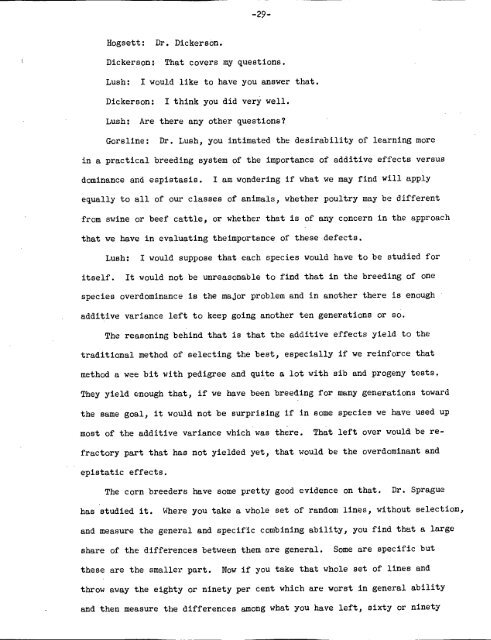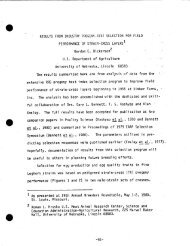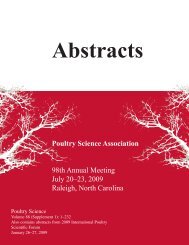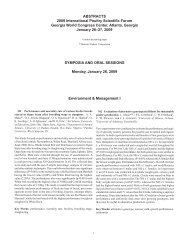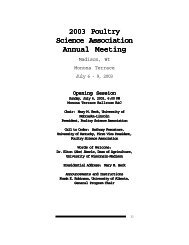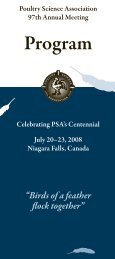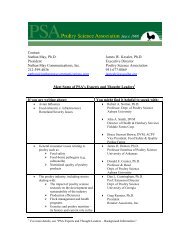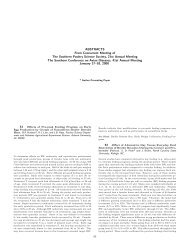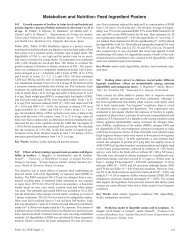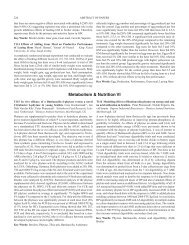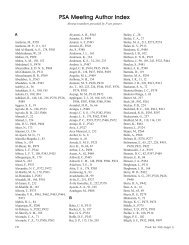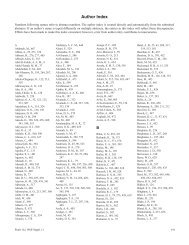Explanation Of Gene Action As Related To Physiological
Explanation Of Gene Action As Related To Physiological
Explanation Of Gene Action As Related To Physiological
Create successful ePaper yourself
Turn your PDF publications into a flip-book with our unique Google optimized e-Paper software.
-29-<br />
Hogsett:<br />
Dickerson:<br />
Dr. Dickers0n.<br />
That covers my questions.<br />
Lush:<br />
I would llke to have you answer that.<br />
Dickerson:<br />
I think you did very well.<br />
Lush:<br />
Are there any other questions?<br />
Gorsllne:<br />
Dr. Lush, you intimated the desirability of learning more<br />
in a practical breeding system of the importance of additive effects versus<br />
dominance and esplstasls.<br />
I am wondering if what we may find will apply<br />
equally to all of our classes of animals, whether poultry may be different<br />
from swine or beef cattle, or whether that is of any concern in the approach<br />
that we have in evaluating theimportance of these defects.<br />
Lush:<br />
I would suppose that each species would have to be studied for<br />
itself.<br />
It would not be unreasonable to find that in the breeding of one<br />
species overdominance is the major problem and in another there is enough<br />
additive variance left to keep going another ten generations or so.<br />
The reasoning behind that is that the additive effects yield to the<br />
traditional method of selecting the best, especially if we reinforce that<br />
method a wee bit with pedigree and quite a lot with slb and progeny tests,<br />
They yield enough that, if we have been breeding for many generations toward<br />
the same goal, it would not be surprising if in some species we have used up<br />
most of the additive variance whlchwas there. That left over would be refractory<br />
part that has not yielded yet, that would be the overdomlnant and<br />
eplstatlc effects.<br />
The corn breeders have some pretty good evidence on that.<br />
Dr. Sprague<br />
has studied it. Where you take a whole set of random lines, without selection,<br />
and measure the general and specific combining ability, you find that a large<br />
share of the differences between them are general.<br />
Some are specific but<br />
these are the smaller part.<br />
Now if you take that whole set of lines and<br />
throw away the eighty or ninety per cent which are worst in general ability<br />
and then measure the differences among what you have left, sixty or ninety


